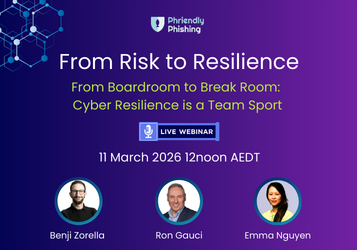While many are gearing up for Easter celebrations, cyber criminals are also preparing their own bag of tricks. Holiday periods often see a surge in online scams, making it crucial for organisations to have a robust cyber security plan in place. Relying solely on a standard checklist might not be enough; a diversified approach is essential to stay a step ahead of those with malicious intent.
This Easter, look out for these possible scams that bad actors create and help build awareness amongst your workforce against them.
Typical Easter Scams
Fundraising activities
Easter is known for its charitable fundraising feats that especially help children or are directed specifically to supporting orphanages or charity initiatives. This makes it easy for scammers to pose as well-reputed organisations and set up hoax donation campaigns.
Through social engineering, scammers can easily manipulate internet users into donating generous sums to untraceable offshore accounts.
Keep in mind that when verifying the links or sites requesting donations, you might get convinced of their legitimacy because of how well they impersonate the actual organisation. Contact the charity itself and make your donations via direct transfer to avoid this.
Fake giveaways and Easter holiday scams
Easter holidays usually mean a short family road trip across the country. This is the best way to lure unsuspecting victims into providing their information by claiming that they have either won a special employee/family package or offering them special rates for lavish accommodation options. Watch out for emails and SMS or ‘Smishing’ scams.
Scammers corner their victims by asking for upfront payment; they also create a sense of urgency in the email to claim their prize.
Offering a limited time frame and encouraging users to act immediately gives them less time to evaluate what is going on. While it sounds like an offer you cannot pass up, look into how reliable it is.
If a holiday or getaway sounds too good to be true, chances are you are on your way to being scammed.
Another way to identify scam emails is if you’ve been asked to give away your PINs, passwords or other sensitive personal information.

Dealing with malware
Malware is the umbrella term given to any malicious software meant to damage or exploit sensitive information of any service, network or programme—these usually get embedded in clickable links and attachments in scam emails.
To keep your organisation’s devices protected from malware, ensure that they have the latest anti-virus and anti-spyware software installed and make sure your system network has an active firewall.
Employee Education and Awareness
One of the most effective ways to combat holiday scams is by empowering employees with knowledge. Regular training sessions on recognising phishing emails, safe browsing habits, and secure password management can help create a strong first line of defence. It’s also important to keep employees informed about the latest scams targeting the organisation, so they can be extra vigilant during holidays when scam traffic is high. Our employee and organisation tip sheets can serve as a timely reminder about the dangers of opportunistic scammers.
The Need for a Diversified Cyber Security Plan
A diversified cyber security plan takes a multi-faceted approach, focusing on prevention, detection, and response. It involves a combination of technical measures, employee training, and ongoing assessment to ensure the organisation stays ahead of emerging threats. During high-risk periods like holidays such as Easter, when scam activity increases it pays to ensure your position is strong.
Prevent being caught in online scams
To best a hacker at their own game, workplaces should stay updated and train employees to have a high level of awareness, especially during regular peak seasons of phishing schemes.
By reinforcing the ways mentioned above in your employee’s daily web surfing and online activities, detecting scams and crafty messages becomes second nature.
If you are unsure where to begin training your employees on your cybersecurity needs, don’t hesitate to contact the experts.


